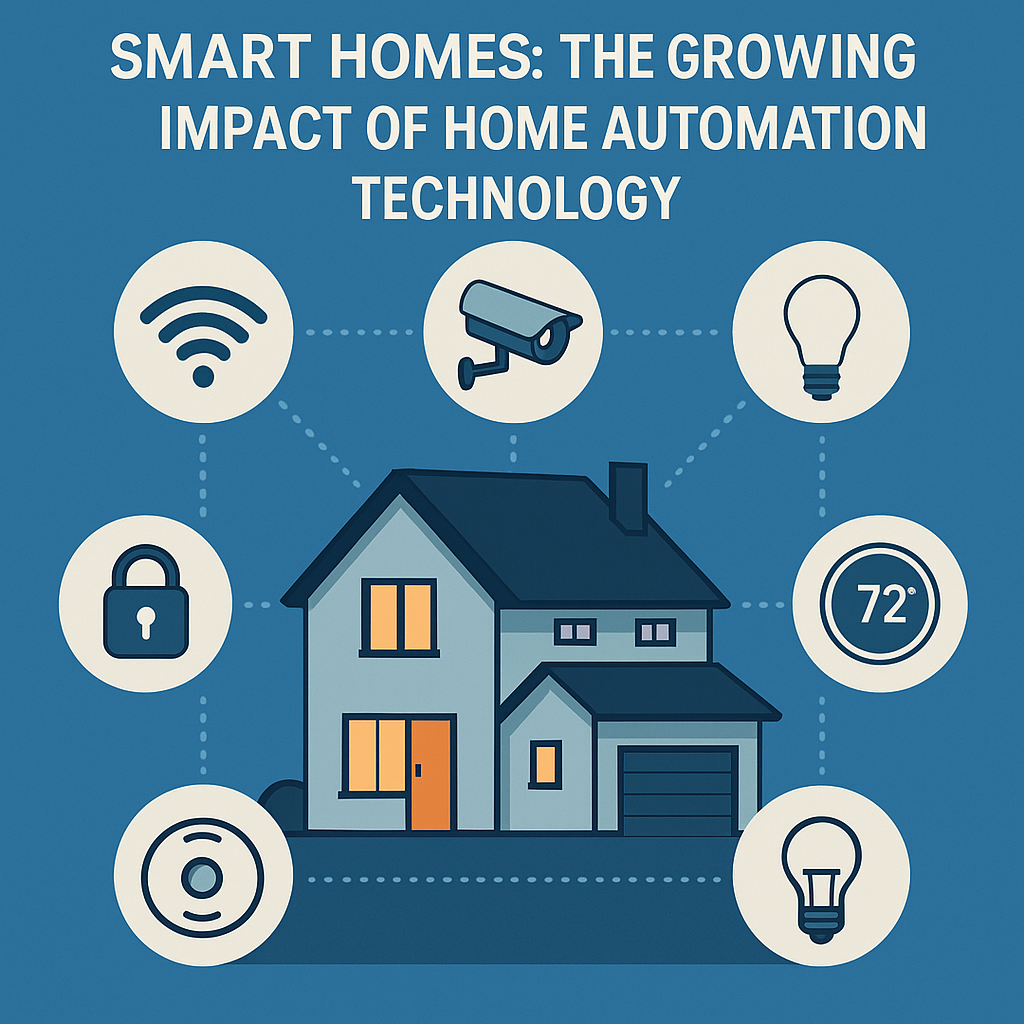In an age where convenience meets innovation, smart home technology is rapidly reshaping the way we live. What was once considered a futuristic luxury is now becoming a standard feature in households across the globe. From voice-controlled lighting to intelligent security systems, home automation is improving efficiency, safety, and comfort in everyday life.
Let’s explore how smart homes are evolving and the real impact they’re having on our lives today.
What Is a Smart Home?
A smart home is a residence equipped with devices that automate tasks typically handled by humans. These devices are connected through the internet and can be monitored and controlled remotely via smartphones, tablets, or voice assistants.
Common examples include:
- Smart thermostats
- Automated lighting systems
- Voice-controlled speakers
- Smart locks and surveillance cameras
- Robotic vacuum cleaners
- Connected kitchen appliances
These systems can communicate with each other, creating a unified network that enhances the living experience.
The Rise of Home Automation Technology
The smart home market has seen tremendous growth over the past decade. With advancements in IoT (Internet of Things), cloud computing, and AI, home automation has moved beyond novelty to necessity.
According to market research, the global smart home industry is expected to reach over $300 billion by 2026. As more people prioritize convenience, energy savings, and security, the demand for automated solutions continues to surge.
Key Benefits of Smart Home Technology
1. Convenience and Control
With a single app or voice command, you can control multiple systems at once — lights, temperature, music, and even your coffee machine. This seamless integration saves time and simplifies daily tasks.
2. Energy Efficiency
Smart thermostats, automated blinds, and energy-monitoring plugs help reduce energy consumption. These tools learn your habits and adjust settings to optimize usage, which not only benefits the environment but also lowers utility bills.
3. Enhanced Security
From motion-sensor cameras to smart doorbells and locks, home automation adds an extra layer of protection. Real-time alerts and remote access mean you can monitor your property from anywhere.
4. Cost Savings
Though the initial investment may be high, smart homes offer long-term savings through reduced energy bills, fewer maintenance issues, and potential insurance discounts for enhanced security features.
5. Accessibility
Smart technology is especially beneficial for the elderly and people with disabilities. Voice-activated devices, automated lighting, and video monitoring allow for greater independence and safety.
Challenges and Considerations
While smart home technology offers numerous benefits, it’s not without its drawbacks:
- Privacy Concerns: Connected devices collect data that can be vulnerable to hacking.
- Compatibility Issues: Not all devices work well together or with certain platforms.
- Cost of Setup: Initial installation and equipment can be expensive.
- Learning Curve: Some systems require time and technical understanding to use efficiently.
Choosing reputable brands, using strong passwords, and keeping software updated are simple steps to mitigate most of these concerns.
Popular Smart Home Devices in 2025
Here are some top-rated devices making waves this year:
- Amazon Echo Show 15: A smart display hub for the family.
- Google Nest Learning Thermostat: Intelligently adapts to your schedule.
- Ring Video Doorbell Pro 2: Offers crystal-clear video and advanced motion detection.
- Philips Hue Smart Bulbs: Customizable lighting that works with major voice assistants.
- iRobot Roomba j7+: A robot vacuum that avoids obstacles and schedules cleanings.
These devices are just the tip of the iceberg — the ecosystem continues to expand.
The Future of Smart Homes
As AI and machine learning become more sophisticated, smart homes will become even more intuitive. We’re looking at a future where:
- Appliances repair themselves through predictive maintenance.
- Homes anticipate your needs based on patterns.
- Renewable energy systems integrate seamlessly with your daily life.
- Health monitoring becomes part of your home environment.
The smart home of tomorrow isn’t just about convenience — it’s about living smarter, safer, and more sustainably.
Final Thoughts
Home automation technology is no longer a luxury for the tech-savvy — it’s a lifestyle choice that’s becoming mainstream. Whether you’re upgrading your home with a few smart bulbs or building a fully connected system, automation has the potential to make life more comfortable, efficient, and secure.
As the technology evolves, so too will the possibilities. Embracing smart home innovation today is an investment in a more convenient and intelligent tomorrow.



